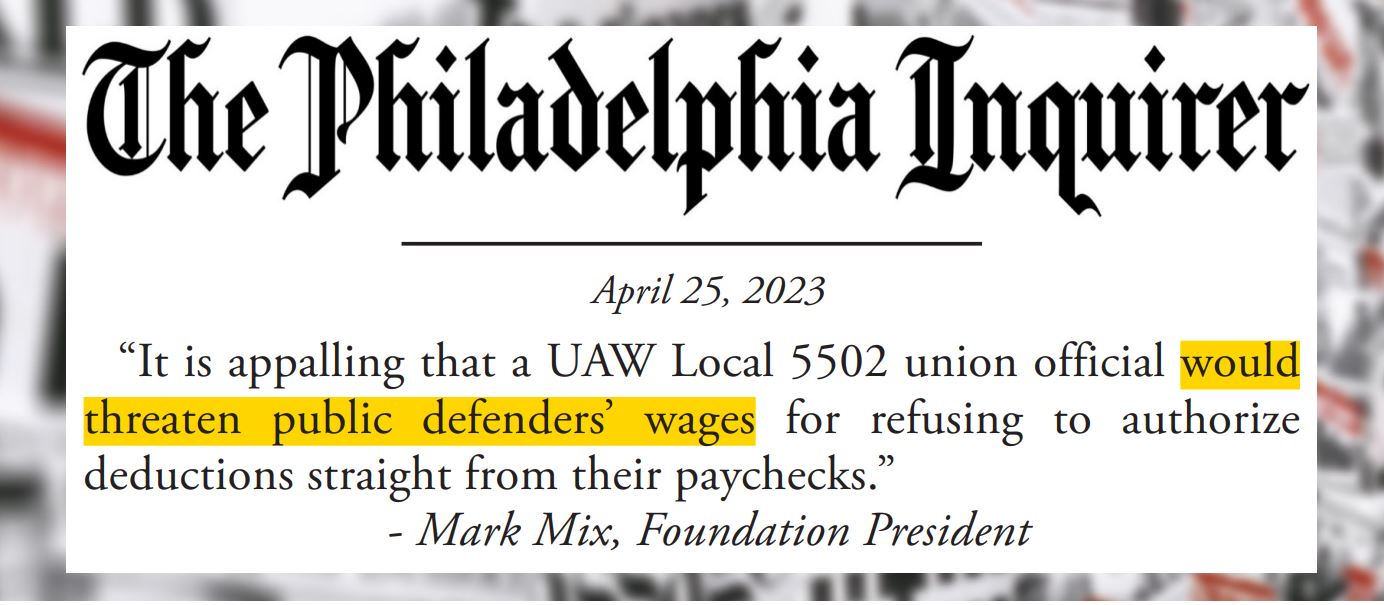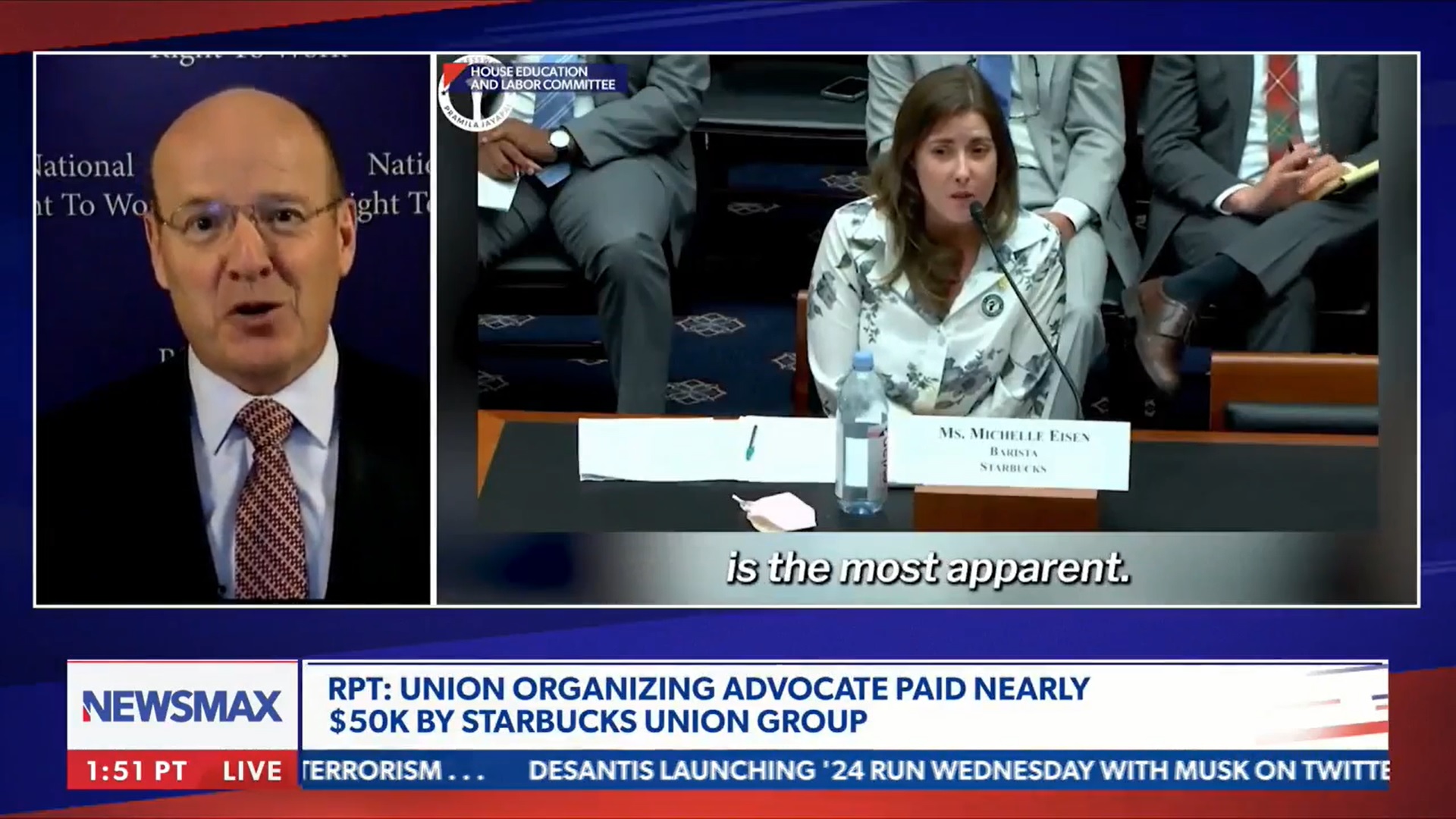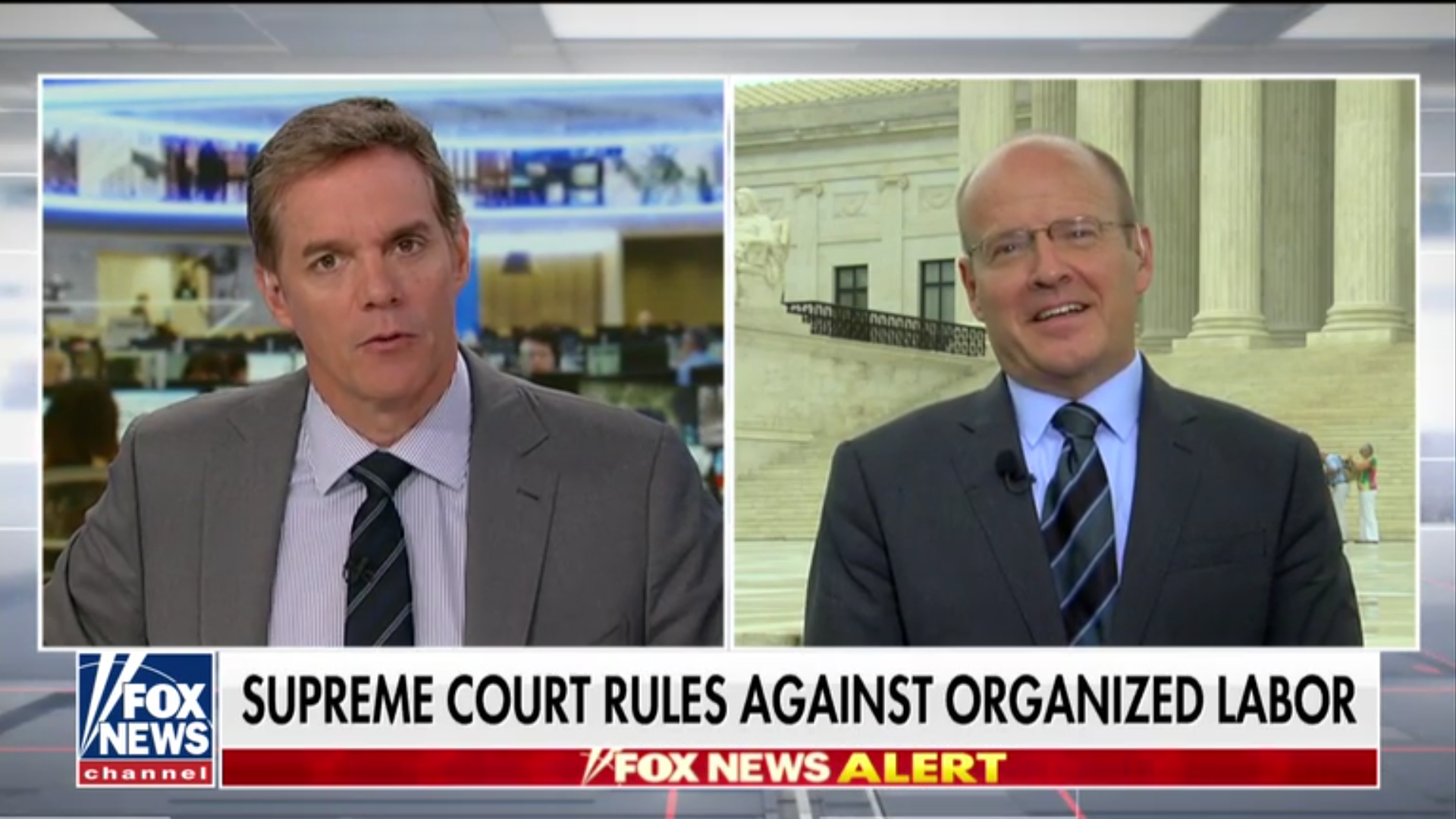Right to Work Foundation Brief: 2018 Janus Decision Means Union “Release Time” Violates AZ Constitution’s Gift Clause
Brief supports challenge pending at Arizona Supreme Court against Phoenix’s scheme to subsidize inherently political union activities with tax dollars
Phoenix, AZ (December 14, 2023) – The National Right to Work Foundation has just filed an amicus brief in Mark Gilmore v. Kate Gallego, a case currently pending before the Arizona Supreme Court. In the case, Phoenix city employees Mark Gilmore and Mark Harder are suing Phoenix Mayor Kate Gallego for engaging in a scheme that redirects taxpayer funds intended for public employees’ compensation toward political advocacy conducted by American Federation of State, County and Municipal Employees (AFSCME) Field II agents on so-called “release time.”
Specifically, the plaintiffs’ lawsuit argues the Arizona Constitution prohibits the use of taxpayer dollars to fund four full-time positions for union officials for the purpose of conducting union business, in addition to a bank of over 3,000 paid hours to be used by other union officials for union purposes, and multiple other perks for union agents.
The Foundation’s brief argues that the release time scheme violates Arizona’s Gift Clause, which forbids government transactions that bestow benefits on private entities while serving no public purpose. The brief points out that the U.S. Supreme Court’s ruling in the Foundation-won Janus v. AFSCME case demonstrates that, under the First Amendment, all government union activities are a form of lobbying designed to influence public policy for the benefit of the union. That means taxpayer subsidies of such activities inherently violate the Arizona Constitution’s Gift Clause.
Brief: “Release Time” Funnels Tax Dollars Unconstitutionally to Union Bosses
The policies unions lobby for “often are matters of substantial public concern, such as how much money the government expends on wages and benefits,” the brief reads. “With its release time policy, the City is effectively paying individuals to lobby the City for a private advocacy organization and its members. The notion that this political advocacy serves a public purpose is untenable.”
In the Janus decision, the U.S. Supreme Court ruled that forcing public sector workers to fund any union activities as a condition of employment constitutes forced political speech barred by the First Amendment.
The Foundation’s brief also deconstructs a proposition that the City of Phoenix’s ability to impose one-size-fits-all union contracts on entire swaths of employees somehow counts as a “public benefit” that the City receives in exchange for enforcing the release time scheme. Foundation attorneys instead argue that the municipal labor code already imposes this obligation on both the union and the City, and thus isn’t a benefit that union bosses are giving the City.
“Given the code already requires the City and AFSCME to impose uniform terms of employment on unit employees, union member and nonmember alike, it necessarily follows that the City did not need to provide AFSCME agents with release time to comply with its pre-existing legal obligations,” the brief contends.
“Union bosses, who will often screech about ‘corporate welfare,’ are more than happy to arrange so-called ‘release time’ schemes in which taxpayer dollars are funneled toward supporting their massive lobbying efforts,” stated National Right to Work Foundation President Mark Mix. “Janus made it plain and simple that compelling public sector employees to fund union activities constitutes forced political speech, and the Arizona Supreme Court has an obligation to declare unlawful compulsion foisted on taxpayers.”
National Right to Work Foundation Issues Special Legal Notice to Infinity Healthcare Employees Amid SEIU Strike Threat
Foundation warns workers that those wishing to continue caring for patients during a strike should resign their memberships before returning to work
Chicago, IL (September 2, 2023) – The National Right to Work Legal Defense Foundation has issued a special legal notice to the approximately 1,000 Illinois nursing home workers who may be impacted by Service Employees’ International Union (SEIU)-Healthcare Illinois union officials’ planned strike order. If SEIU officials order the strike, employees from 11 Infinity Healthcare nursing facilities in the Chicago area will be ordered off the job.
The legal notice informs Infinity Healthcare workers of their rights, including their right to not abandon their patients and to keep working despite the union-ordered strike. The notice discusses why workers across the country frequently turn to the National Right to Work Foundation for free legal aid in such situations.
“This situation raises serious concerns for healthcare employees who believe there is much to lose from a union boss-ordered strike,” the notice reads. “Employees have the legal right to rebuff union officials’ strike demands, but it is important for them to be fully informed before they do so.”
The full notice is available at www.nrtw.org/infinity
The notice outlines the process that Infinity Healthcare workers should follow if they want to exercise their right to return to work during the strike and avoid punishment by union bosses, complete with sample union membership resignation letters. The notice reminds workers that SEIU union officials have no disciplinary power over workers who are not union members, and advises Infinity Healthcare employees who wish to work during the strike to resign their memberships at least one day before returning to work.
“That is the best way to avoid potential union fines and other discipline,” the notice says.
Further, the notice reminds employees of their rights to cut off all union dues payments in the absence of a monopoly bargaining contract with the nursing home company. The notice encourages employees to seek free legal aid from the Foundation if they experience union resistance as they attempt to exercise any of these rights.
“Infinity Healthcare employees are likely aware of the impact this strike may have on the Chicago senior population, and may rightfully question whether the upcoming union-ordered strike is really best for employees, their families, and their patients,” commented National Right to Work Foundation President Mark Mix. “Infinity Healthcare employees should know they unequivocally have the right to reject union strike orders and continue to care for those in need.”
“Any nursing facility employee who wants to exercise her or her right to rebuff SEIU union officials’ sweeping strike order should immediately contact the Foundation for free legal aid should SEIU bosses violate their legal rights,” added Mix.














